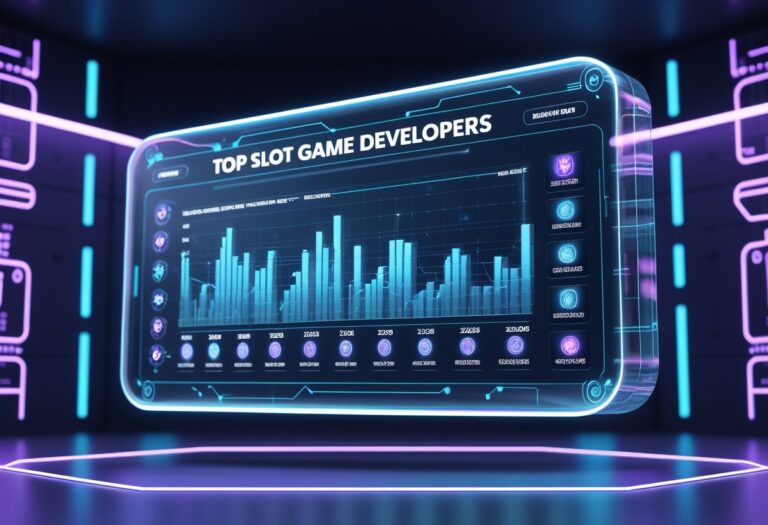
How Does Data Visualization Transform Sports Betting Analysis?
Key Takeaways
- Data visualization tools convert complex betting statistics into actionable insights
- Visual analytics reveal hidden patterns that raw data alone might miss
- Interactive dashboards enable real-time decision making for sports bettors
- Combining statistical analysis with visual representations improves betting accuracy
Data visualization in sports betting transforms raw statistical information into clear, actionable insights that help bettors make more informed decisions. Modern betting analysis has evolved beyond basic statistics and gut feelings into a sophisticated data-driven process where visual tools play a crucial role in pattern recognition and trend analysis.
Understanding Visual Analytics in Betting
Visual analytics tools present betting data through:
- Heat maps showing betting volume and line movements
- Time-series graphs tracking odds fluctuations
- Interactive dashboards displaying key performance metrics
- Correlation charts revealing relationships between different variables
Benefits of Visual Data Analysis
- Pattern Recognition
- Quickly identify trending betting opportunities
- Spot historical patterns in team performance
- Recognize market inefficiencies
- Real-Time Decision Making
- Monitor live odds movements
- Track betting volume changes
- Analyze in-play betting opportunities
- Risk Management
- Visualize bankroll allocation
- Track performance across different bet types
- Monitor exposure and liability
Impact on Betting Strategy
Advanced visualization techniques enable bettors to:
- Process larger amounts of data more efficiently
- Identify profitable betting opportunities faster
- Make more objective, data-driven decisions
- Reduce emotional bias in betting choices
Visual analytics have become essential for maintaining competitiveness in today’s sports betting market, where quick decision-making and pattern recognition can mean the difference between profit and loss.
The Evolution of Sports Analytics

How Has Sports Analytics Evolved in Modern Sports?
Key Takeaways
- Sports analytics has transformed from basic statistics to AI-powered predictive models
- Real-time data collection now includes biometrics, player movements, and environmental factors
- Advanced analytics platforms enable more accurate performance predictions and strategic decisions
The Journey from Spreadsheets to Smart Analytics
Sports analytics has evolved dramatically from its humble beginnings with basic win-loss records and player averages.
Today’s sophisticated systems process millions of real-time data points using machine learning, computer vision, and advanced statistical methods to analyze every aspect of gameplay.
Modern Analytics Capabilities
Advanced analytics platforms now deliver unprecedented insights through:
- Player movement tracking
- Fatigue level measurements
- Team chemistry evaluation
- Performance prediction models
- Weather impact analysis
- Injury risk assessment
- Social media sentiment analysis
Technology Integration and Data Collection
The integration of cutting-edge technology has revolutionized data collection in sports:
- Wearable devices
- IoT sensors
- Biometric monitoring systems
- Speed measurement tools
- Impact force trackers
- Real-time performance metrics
The Role of Artificial Intelligence
Modern sports analytics leverages AI to:
- Process vast amounts of data instantly
- Generate actionable insights
- Identify performance patterns
- Predict game outcomes
- Analyze player potential
- Optimize team strategies
This technological evolution has created a more data-driven approach to sports analysis, enabling teams and analysts to make more informed decisions based on comprehensive, real-time information.
Visual Tools for Pattern Recognition

How Can Visual Tools Enhance Pattern Recognition?
Key Takeaways
- Visual analytics tools transform complex data into clear, actionable insights
- Interactive dashboards enable real-time data exploration and pattern detection
- Combining multiple visualization types provides comprehensive data understanding
Understanding Basic Visual Analytics Tools
Line charts, heat maps, and scatter plots serve as fundamental tools for transforming raw data into meaningful patterns.
These visualizations make it possible to identify trends and correlations that might remain hidden in traditional spreadsheets. For example, line charts effectively track changes over time, while heat maps highlight intensity patterns across multiple variables.
Advanced Visualization Techniques
Treemaps and bubble charts excel at displaying hierarchical data and multiple variables simultaneously.
These tools allow users to compare different data points while maintaining context within the larger dataset. Color-coded matrices provide additional layers of information, making it easier to spot relationships between different variables and outcomes.
Interactive Data Exploration
Modern visualization platforms feature dynamic dashboards that enable real-time data filtering and analysis.
Users can adjust parameters instantly to reveal new patterns and insights. Radar charts effectively compare multiple metrics across different scenarios, while motion charts track historical patterns and trends over time.
Integration with Advanced Analytics
When combined with machine learning algorithms, visual analytics tools become even more powerful. This integration allows for:
- Automated pattern detection
- Predictive trend analysis
- Real-time anomaly identification
- Complex correlation discovery
Visual analysis platforms continue evolving, offering increasingly sophisticated ways to uncover patterns in complex datasets.
Real-Time Data Interpretation

How Does Real-Time Data Analysis Transform Sports Visualization?
Key Takeaways:
- Real-time data visualization enables instant analysis of sports performance metrics
- Interactive dashboards combine multiple data streams for comprehensive insights
- Visual tools help identify patterns and trends as they emerge during live games
Understanding Live Sports Data Visualization
Real-time data visualization transforms 먹튀검증커뮤니티 analysis by converting live game statistics into instantly readable visual formats.
Modern visualization tools display shot charts, player efficiency ratings, and team performance metrics that update automatically with each play, making complex data immediately comprehensible.
Essential Visual Analysis Tools
Dynamic heat maps reveal action concentration zones while line graphs track statistical trends throughout game progression. These visualization methods highlight:
- Shot distribution patterns
- Player movement tracking
- Performance efficiency ratings
- Score differential trends
- Team momentum shifts
Interactive Dashboard Integration
Modern sports analysis dashboards combine multiple data streams into unified viewing interfaces. These systems feature:
- Real-time statistical updates
- Color-coded performance indicators
- Historical comparison overlays
- Probability modeling displays
- Trend analysis tools
Pattern Recognition and Trend Analysis
Visual analytics tools enable rapid pattern identification through:
- Color-coded performance indicators
- Size-variable data representations
- Automated anomaly detection
- Comparative historical overlays
The integration of these elements creates a comprehensive analytical framework that transforms raw game data into actionable insights, allowing viewers to track and understand game dynamics as they unfold.
Statistical Modeling Through Visualization

How Can Data Visualization Transform Statistical Modeling?
Key Takeaways
- Visualization techniques convert complex statistical data into clear, actionable insights
- Interactive dashboards enable multi-variable analysis for pattern recognition
- Visual machine learning tools improve model interpretability and refinement
Understanding Statistical Visualization Basics
Statistical modeling becomes more accessible through advanced visualization techniques that transform complex data into clear, actionable insights.
Scatter plots, regression lines, and heat maps reveal hidden patterns that raw numbers alone can’t convey. These visual tools help analysts identify trends and correlations that drive better decision-making.
Interactive Analysis Tools
Interactive dashboards revolutionize data analysis by enabling simultaneous visualization of multiple variables.
Users can explore relationships between different factors in real-time, making it easier to:
- Plot correlations between variables
- Identify outliers and anomalies
- Track changes over time
- Adjust parameters dynamically
Machine Learning Visualization
Visual representations enhance machine learning model interpretation through:
- Decision tree maps
- Neural network diagrams
- Feature importance plots
- Model performance metrics
These visualization tools help data scientists understand model behavior, optimize parameters, and identify the most influential predictive features.
Visual feedback allows for quick model adjustments and improvements based on new information.
Best Practices for Statistical Visualization
- Choose appropriate chart types for specific data relationships
- Maintain clear labeling and legends
- Use consistent color schemes
- Include interactive elements for deeper exploration
- Ensure accessibility for different user skill levels
Interactive Dashboards in Betting

How Do Interactive Betting Dashboards Transform Sports Wagering?
Key Takeaways
- Real-time data integration allows instant access to comprehensive betting statistics
- Customizable views and alerts help track specific betting opportunities
- Multi-source data integration provides complete market insights
- Visual analytics make complex betting patterns more recognizable
Real-Time Data Access and Analysis
Interactive betting dashboards revolutionize sports wagering by delivering comprehensive betting data instantaneously to users.
These dynamic platforms enable seamless navigation between different metrics, odds comparisons, and historical trends through an intuitive interface.
Bettors gain immediate access to live statistics, performance indicators, and market movements that directly influence wagering decisions.
Customization and Personalization Features
Modern betting dashboards empower users to tailor their experience based on individual strategy preferences. Key features include:
- Personalized alerts for line movements
- Team and player-specific tracking systems
- Visual head-to-head matchup analysis
- Custom data filtering options
- Strategic pattern recognition tools
Integrated Data Sources and Real-Time Updates
The power of betting dashboards lies in their comprehensive data integration capabilities:
- Weather condition reports
- Injury status updates
- Multi-sportsbook odds comparison
- Predictive modeling insights
- Live market movement tracking
These features combine to create a unified platform where bettors can analyze multiple data points simultaneously, leading to more informed wagering decisions based on current market conditions and trends.
Machine Learning and Visual Predictions

How Are Machine Learning Models Revolutionizing Visual Sports Predictions?
Key Takeaways
- Machine learning transforms sports analysis by converting complex data into visual predictions
- Real-time visualization tools enable dynamic betting decisions during live games
- AI-powered systems combine multiple data sources for more accurate outcome predictions
Understanding Visual Prediction Models
Machine learning models revolutionize sports betting by transforming vast datasets into digestible visual formats.
These AI-powered systems process historical game data, player statistics, and real-time information to generate clear, actionable insights for bettors and analysts.
Visual Analysis Tools and Their Impact
Modern ML-driven visualizations combine multiple critical data points:
- Player performance metrics
- Team statistics
- Weather conditions
- Historical matchup data
- Live game positioning
These elements appear through intuitive visual formats like:
- Heat maps showing scoring probabilities
- Decision trees displaying outcome likelihood
- Pattern recognition displays
- Real-time tactical analysis charts
Real-Time Updates and Dynamic Predictions
The visual prediction landscape continues evolving through:
- Live data integration during games
- Automatic adjustment of visual predictions
- Computer vision analysis of player movements
- Tactical shift detection
- Immediate probability updates
Advanced Features for Better Decision Making
Visual prediction tools enhance betting decisions through:
- Pattern breakdown identification
- Probability mapping across scenarios
- Integration of multiple data sources
- Real-time adjustment capabilities
- Tactical analysis visualization
Machine learning visual predictions create a more informed and strategic approach to sports analysis, allowing users to process complex information quickly and make data-driven decisions effectively.
Risk Assessment Using Visual Data

How Can Visual Data Improve Risk Assessment?
Key Takeaways
- Visual analytics tools transform complex risk data into actionable insights
- Heat maps and risk matrices effectively display probability distributions
- Interactive dashboards enable real-time monitoring of risk factors
- Data visualization helps maintain optimal bankroll management
Understanding Visual Risk Assessment Tools
Risk assessment through data visualization transforms complex betting information into clear, actionable insights.
Heat maps and risk matrices display probability distributions across betting options, while color-coded dashboards track real-time odds movements and potential threats.
Essential Visual Analytics Components
- Interactive heat maps for probability analysis
- Risk matrices showing potential loss scenarios
- Real-time odds movement dashboards
- Tree maps for bankroll allocation
- Bubble charts for risk exposure visualization
Integrating Multiple Data Sources
Visual analytics combine quantitative and qualitative factors for comprehensive risk evaluation:
- Quantitative Data
- Historical performance metrics
- Odds movements
- Statistical patterns
- Bankroll allocation ratios
- Qualitative Factors
- Team morale indicators
- Venue conditions
- Weather impact
- Injury reports
Practical Applications
Tree maps and bubble charts provide clear visualization of:
- Bankroll distribution across different bets
- Risk exposure levels
- Betting proportions
- High-risk scenario identification
This systematic approach to visual risk assessment enables more informed decisions about risk tolerance and bet sizing while maintaining proper bankroll management principles.



